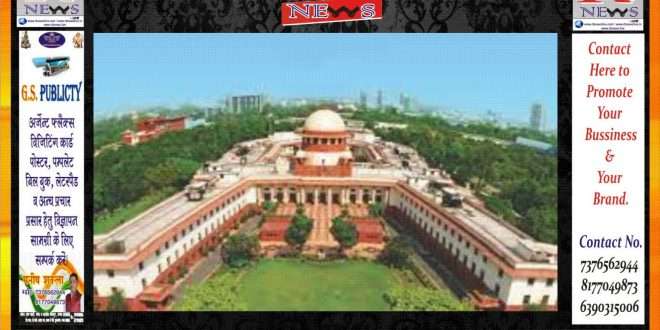Sand Mining Case: Regarding the investigation and summons of the Enforcement Directorate (ED), parties and leaders of many states are accusing the Central Government of misusing the investigating agencies. In such a situation, the Supreme Court has given an order regarding the summons of ED, in which the court said that the persons will have to appear before the ED to cooperate in the investigation.
Actually, the Supreme Court was hearing the Kathik illegal sand mining case in Tamil Nadu. The court on Tuesday (February 27) said that the persons summoned under the Prevention of Money Laundering Act (PMLA) will have to appear before the Enforcement Directorate (ED) to cooperate in the ongoing investigation. In this way the court foiled the attempt of the Tamil Nadu government to protect the district collectors from questioning.
The Supreme Court suspended the order of the Madras High Court which barred the ED from seeking the personal presence of five district collectors of the state. The Supreme Court said that it is necessary for the officers to respect and respond to the summons of the agency. Along with this, the court ordered the collectors to appear before the investigators on the date fixed by the agency.
What did the Supreme Court say in the decision?
While delivering the verdict, the bench of Justice Bela M Trivedi and Justice Pankaj Mithal said, “ED has issued the relevant summons using the powers under Section 50 of PMLA. If any officer considers the presence of any person necessary during investigation or proceedings under the Act, then a reading of the Act clearly shows that the concerned authority has the power to summon any person. “The District Collector and the persons to whom summons have been issued are bound to honor and respond to that summons.”
This order of the Supreme Court has come at a time when states led by political parties other than the Bharatiya Janata Party (BJP) have accused the central government of targeting political opponents with the help of federal agencies like the Central Bureau of Investigation and ED.
What will Arvind Kejriwal do now?
On Monday, Delhi Chief Minister Arvind Kejriwal did not appear before the agency on the summons of ED for questioning in a money laundering case related to alleged irregularities in the Delhi Excise Policy 2021-22. The Aam Aadmi Party (AAP) later said in a statement that since the matter is before the court, Kejriwal will not appear before the ED. The ED has filed a complaint against Kejriwal in a Delhi court for “disobeying” the summons. The court has exempted Kejriwal from appearing personally in the court till March 16.
‘If ED can sue us then why can’t we’, why did Tamil Nadu government say this in the Supreme Court?
There is a fight going on in the Supreme Court between the Enforcement Directorate (ED) and the state government over the investigation of illegal sand mining case in Tamil Nadu. On one hand, ED is alleging that the Tamil Nadu government is not cooperating in the investigation, while on the other hand, the state government is saying that the ED investigation is not valid. Meanwhile, the Supreme Court told the MK Stalin government that you should help the ED in finding out whether a crime has been committed or not as there is no harm in it.
Emphasizing this, the Supreme Court on Monday (February 26) said that state officials are bound by the Prevention of Money Laundering Act (PMLA) passed by Parliament. The bench of Justice Bela M Trivedi and Justice Pankaj Mithal said that the state government will have to follow the law of Parliament under Article 256 of the Constitution. What problem can the state face if something is asked of the District Collector of the state?
What did the lawyer of Tamil Nadu government say?
Advocates Kapil Sibal and Amit Anand Tiwari, appearing in the court on behalf of the state government, said that the ED can investigate only when there is a predicate offence. If the court wants that all the cases should be investigated by the Central Investigation Agency, then the court should pass a general order.
Kapil Sibal said, “First of all, there is no mention of the proceeds of crime in the FIR sought to be constituted. Second, there is no predicate offence. Therefore, the question of issuing notice under Section 50 does not arise. Third, ED is related to money laundering. “It has no power to investigate the predicate offense under PMLA.”
Sibal further said, “The state government is filing a writ petition in this matter as the state authority has been asked to produce documents regarding the mining leases.” The senior lawyer said that mining is not a notified offense under PMLA and the state government is suffering because the ED is seeking information from the district collector.
 RB News World Latest News
RB News World Latest News






